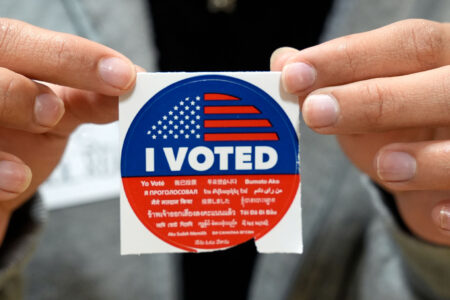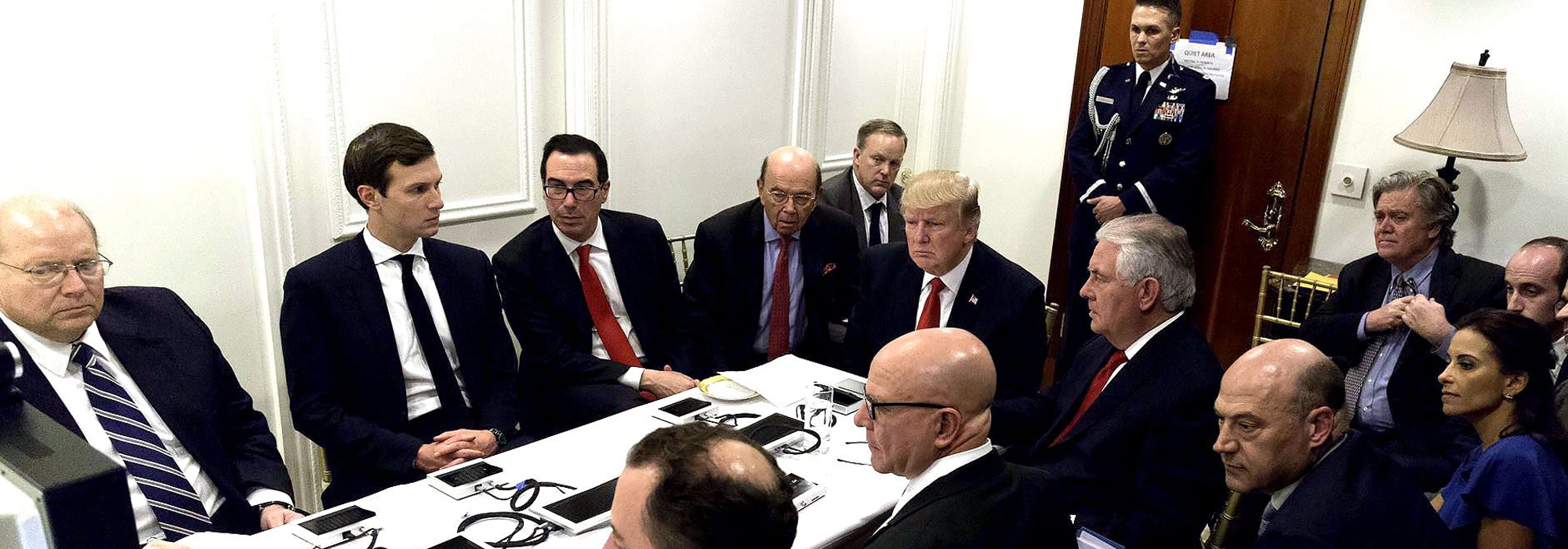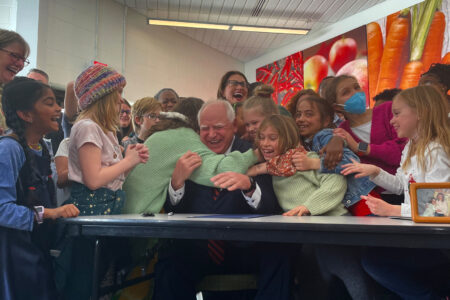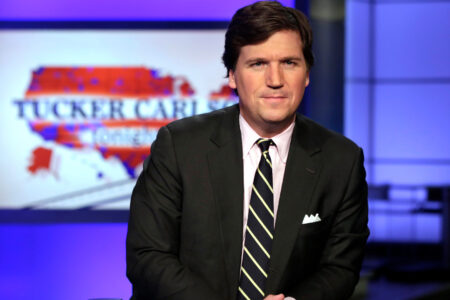
On the evening of April 6, Trump took a break from hosting Chinese President Xi Jinping at the Mar-a-Lago residence to launch air strikes in Syria, targeting the Shayrat airbase. The strikes were punitive, ordered after US intelligence indicated that Bashar al-Assad had once again gassed his own people, killing more than 80 men, women and children. The US strikes were also futile, the knee-jerk reaction of a president who has not planned his next move, let alone thought through a strategy to end the Syrian conflict.
The night Trump called for those strikes, US allies, Canada included, were not consulted, they were notified. According to reports, Trump called Prime Minister Justin Trudeau one hour before the missiles were launched and asked for political support. This kind of bilateral, last-minute request is difficult to turn down, especially when one is familiar with Trump’s pressure tactics and unpredictable nature. Other close allies, like the UK, France and Germany, were quick to issue supportive statements. This show of support was misguided.
The strikes seem to have temporarily satisfied an urge to punish Assad for using chemical weapons, while ignoring the real issue – that the 2013 deal to permanently dismantle Syria’s chemical arsenal has failed. It is important to remember that the chemical disarmament deal, overseen by the Organization for the Prohibition of Chemical Weapons, was President Vladimir Putin’s idea. At the time, it was trumpeted as a major diplomatic victory for Russia. It also offered President Barack Obama an opportunity to save face after deciding against similar punitive strikes following Assad’s chemical attacks in Goutta, a Damascus suburb. Indeed, President Obama faced lukewarm support for strikes from allies, firm Congressional opposition and a divided cabinet. He backed away from his red line.
Fast forward to 2017, and Trump is eschewing the need for consultation, both domestic and international, deciding to act unilaterally to send a message to Assad by way of 59 Tomahawk missiles. Trump was praised for his decisiveness, but the next day the Syrian air force was back at it, launching conventional airstrikes from the same base, down, but certainly not out. More significantly, Russia bolstered its support for Syria by boosting air defences and condemning the US strikes at the United Nations. The strikes have changed nothing, they represent a short-term, impulsive reaction to abhorrent images of children being chemically asphyxiated.
In fact, the strikes could very well prove to be counterproductive, in that it weakens the rules and norms on the use of force.
Here is why. First, these unilateral strikes have no basis in international law. And domestically, Trump did not seek authorization from Congress. The support offered by US lawmakers and Western allies is essentially an endorsement of the argument that the ends justify the means. That is a dangerous precedent to set with Trump, who would be right to perceive a permissive environment for this kind of imprudent, coercive behaviour.
There is no evidence that support for intervention would be more forthcoming now than it was in 2013; therefore, the warning rings hollow and further undermines American credibility in the region.
Second, warning shots only work if you can threaten escalation. To launch a military intervention in Syria, the US would need allies. There is no evidence that support would be more forthcoming now than it was in 2013; therefore, the warning rings hollow and further undermines American credibility in the region. The situation on the ground is far more complex, and Western states have concentrated their military efforts on defeating the Islamic State. Going after Assad would mean waging war on a new front, with no successful precedent. Regime change did not lead to decisive and stable political outcomes in Afghanistan, Iraq or Libya.
Third, the strikes have made a diplomatic solution to the Syrian conflict involving Russia more difficult. The possibility of successfully negotiating with Putin is one of the few advantages Trump had over Obama. Thus Trump has recklessly forfeited the path that held the greatest promise.
Moving forward, Trump’s options in Syria are limited and unattractive: the Secretary of State and the ambassador to the UN have now called for regime change, a 180-degree policy shift that effectively demonstrates that there never was a Syria strategy. Russia’s involvement in the conflict is deeper than it has ever been, which has decreased the likelihood that it will be possible to toss out Assad using military means. One might also add that in 2013 Putin was still deemed a semi-tolerable partner, since he had not yet proceeded with the annexation of Crimea. While Trump’s strikes did not alter the balance of power on the ground in Syria in any way, it did increase Putin’s resolve to protect its puppet regime.
What should Trump have done? It would have been far more effective to hold off these symbolic strikes and instead condemn Russia for allowing Assad to violate the Chemical Weapons Convention, and to put the burden on Moscow to prove that the attacks did not originate from a Syrian air-base hosting Russian forces.
What is most puzzling in all of this is why Assad would have an interest in launching chemical strikes at this stage of the protracted civil war. The situation on the ground is favourable to him, he has strong backing from the Russians, and he has limited interference from the United States. A week prior to the chemical attacks, Secretary of State Tillerson even stated publicly that the US was not going to focus on Assad. Why on earth would Assad want to upset this relatively favourable status quo? One can speculate about a wing of the Syrian air force going rogue, or Assad just wanting to demoralize rebel-held strongholds into a decisive military defeat. But it bears repeating that it was Moscow’s business to know, but Putin is not being held accountable. Putin owns this catastrophe, and Trump did not even bother to point that out in a Tweet.
Photo: REX/Shutterstock (8587091a). Mar-a-Lago, Palm Beach, Florida, April 6, 2017. US President Donald Trump receives a briefing on the Syria military strike from his National Security team.
Do you have something to say about the article you just read? Be part of the Policy Options discussion, and send in your own submission. Here is a link on how to do it. | Souhaitez-vous réagir à cet article ? Joignez-vous aux débats d’Options politiques et soumettez-nous votre texte en suivant ces directives.








